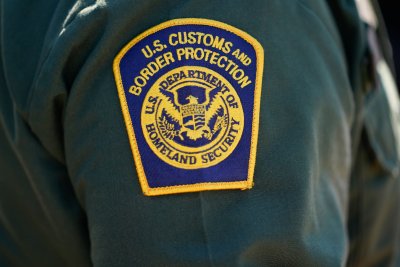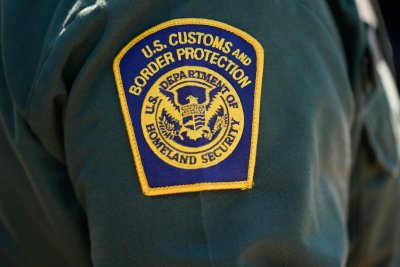
U.S. Customs and Border Protection agriculture specialists encountered potentially disease ridden bushmeat twice within one week at Detroit Metropolitan Airport late last month, U.S. officials said Wednesday. Photo courtesy of U.S. Customs and Border Protection
Aug. 20 (UPI) — U.S. border officials in Michigan stumbled on multiple discoveries of likely disease-ridden African bushmeat within a week’s time.
U.S. Customs and Border Protection agents found two different passengers twice within a week in late July at Michigan’s Detroit Metropolitan Airport. Both the unidentified were from Togo and Gabon, respectively.
“These recent bushmeat interceptions are significant in bringing attention to the illegal importation of bushmeat through our ports of entry,” Detroit Metropolitan’s Port Director Fadia Pastilong said in a statement.
Bushmeat refers to wild animals often in the form of bats, non-human primates and cane rats from certain regions that, according to U.S. health officials, pose “significant communicable disease risk.”
The border agency pointed specifically to how the incidents showcase how it works with partner agencies to prevent disease outbreaks.
Border officials in Detroit added that while rodent-type bushmeat finds were sporadic as it is, the recently-located primate interceptions, they said, were “much rarer.”
“We routinely find various agriculture items and oddities,” stated Marty C. Raybon, Detroit’s director of field operations.
The Togan native from west Africa carried around 11 ponds of rodent meat. However, both travelers also had undeclared so-called “agriculture items.”
Raybon noted other similar finds include live giant snails, animal skulls and other “exotic food items.”
The unnamed traveler from central Africa in Gabon only two days later yielded some 52 pounds primate meat falsely declared as antelope.
Bushmeat is considered a cultural delicacy in parts of Africa and often consumed raw with minimal processing.
U.S. officials noted how the tradition also expands risk of disease spreading.
“Ebola, mpox, and other emerging diseases can have catastrophic consequences if they enter human populations,” they stated.
They added it’s also illegal to import bushmeat into the Untied States.
Last year in February a CBP K9 beagle agent named Buddey sniffed out dehydrated monkey remains from the Democratic Republic of Congo at Boston’s Logan Airport the traveler claimed was “dried fish.”
The illegal African bushmeat ultimately was turned over to CDC specialists for final disposition.
Meanwhile, the two unidentified African traveler were fined $300 each for the “undeclared agriculture items” in their attempt to bring their native “bushmeat” to U.S. shores.
